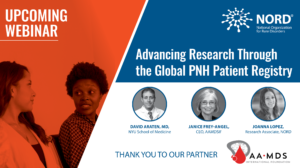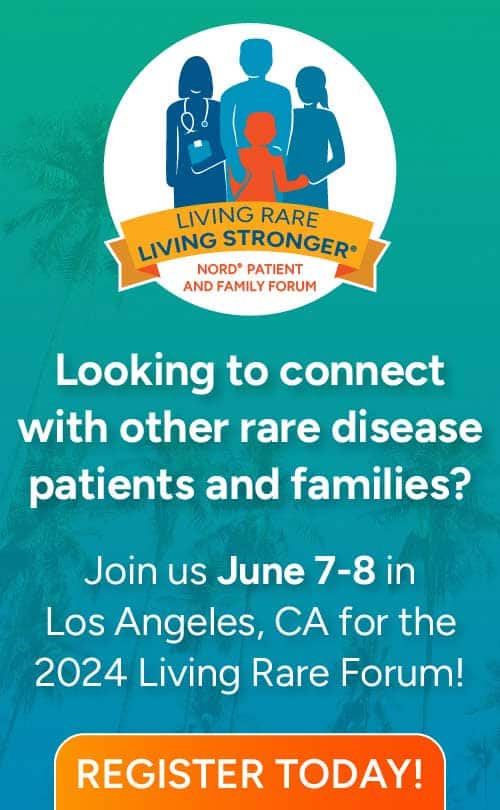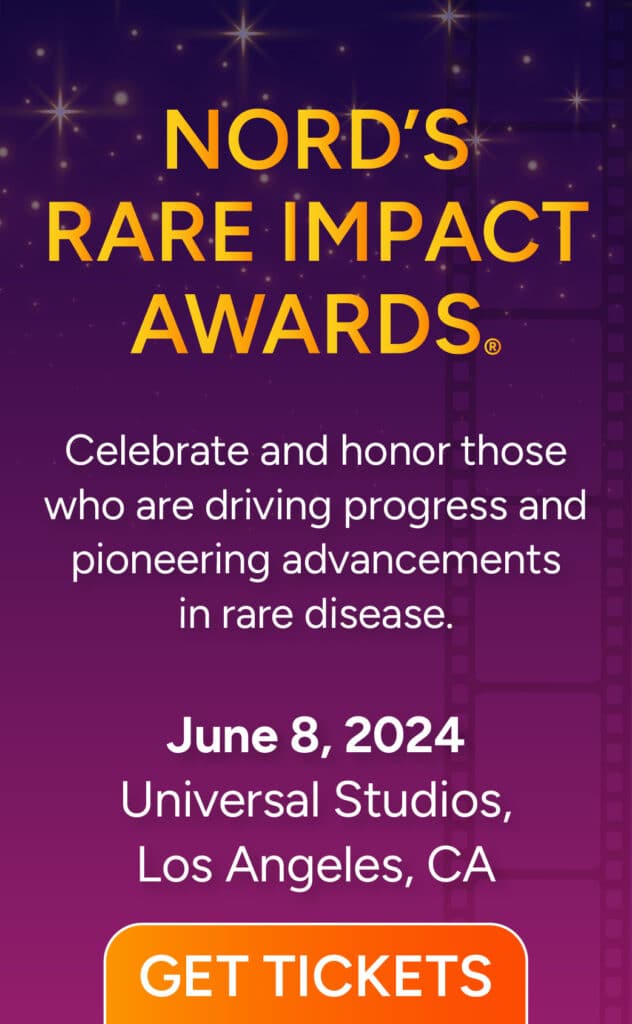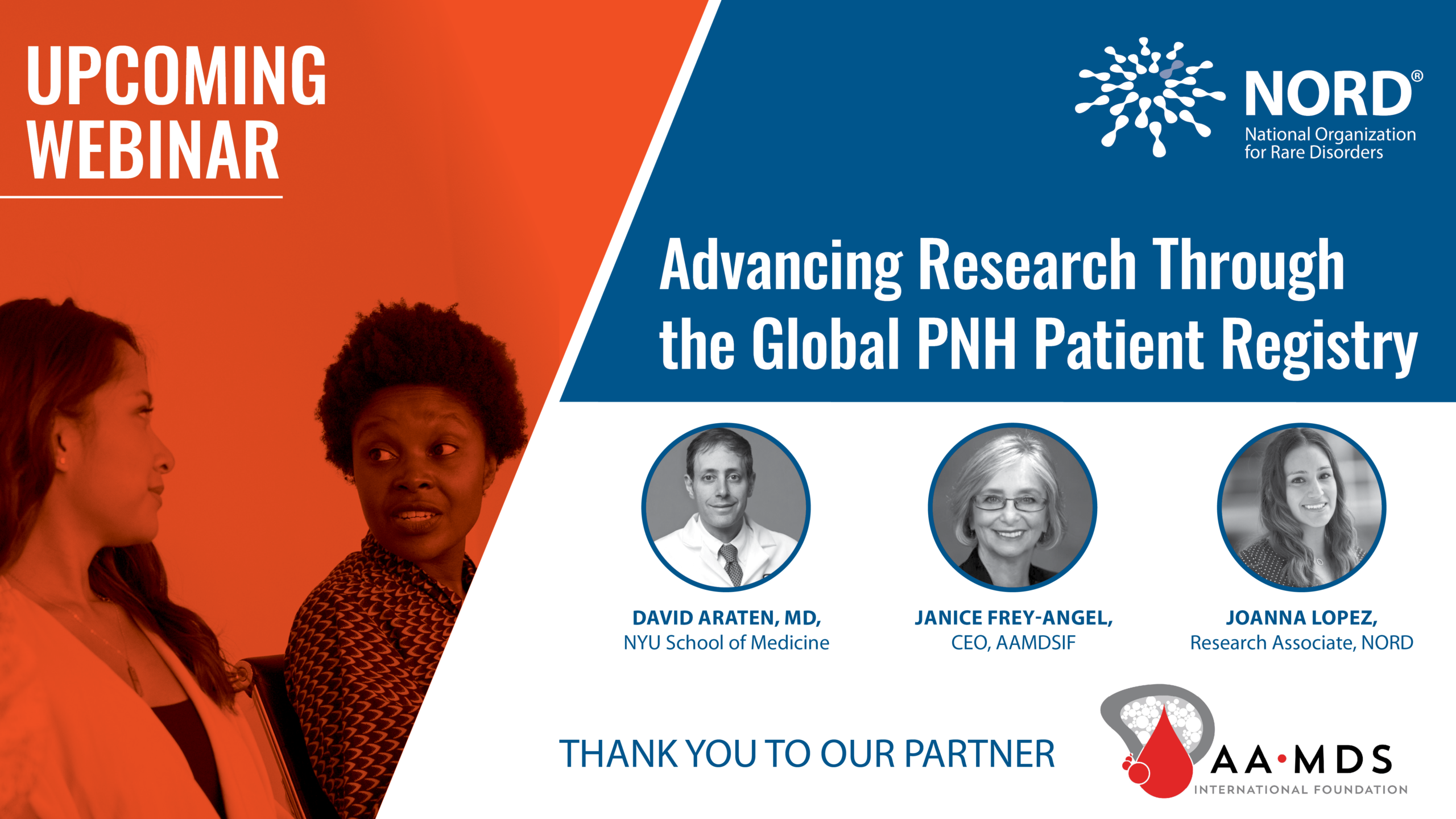Bethesda, MD, May 6, 2021—The Aplastic Anemia and MDS International Foundation (AAMDSIF) and the National Organization for Rare Disorders (NORD)® today launched the largest-ever study to research Paroxysmal Nocturnal Hemoglobinuria (PNH), a rare bone marrow failure disease . PNH is characterized by the destruction of red blood cells, blood clots and impaired bone marrow function. While there are treatments available to improve the patients’ quality of life, PNH currently has no cure.
The new study, the Global PNH Patient Registry*, creates a platform for patients around the world to share information about their experience with PNH. In gathering data from as many affected individuals as possible, the study will serve as an international resource for researchers looking to improve the lives of PNH patients.
“The Aplastic Anemia and MDS International Foundation is a 37-year-old patient-focused organization providing answers, support and hope to bone marrow failure patients and their families,” said Janice Frey-Angel, CEO of AAMDSIF. “The Global PNH Patient Registry is an opportunity to give hope to PNH patients throughout the world by sharing their information with each other and with researchers to continue the quest for better treatment options and a cure.”
To help drive awareness of PNH and encourage participation in the study, AAMDSIF and its community partners are working in collaboration with NORD to reach the patient community, which in the United States alone consists of around 400 to 500 individuals diagnosed with PNH each year. “Our goal is to enroll as many patients, or their parents or legal guardians, as possible,” said Frey-Angel. “The success of the registry is dependent upon broad community participation.”
The Global PNH Patient Registry is a natural history study that consists of electronic surveys to collect information about the patient experience and disease progression. Patients, or their caregivers or guardians, can enter information from anywhere in the world, making it easy to participate. The data is made anonymous and stored securely in the registry. AAMDSIF may share the data with individuals or institutions conducting research or clinical trials, as approved by the study’s governing board that includes scientists, doctors and patient advocates.
“Patient-powered registries are changing the landscape of rare disease research,” said Stephanie Christopher, NORD’s Associate Director of Research Programs. “By building strong partnerships within the community and with leading scientific experts, NORD’s Registry Program is well-positioned to address knowledge gaps and accelerate the development of discoveries that save lives. We are so pleased to welcome the Aplastic Anemia and MDS International Foundation to our IAMRARE® Registry Community!”
PNH is a rare blood disease that affects at least one person out of every million people. PNH occurs because the surface of a person’s blood cells is missing a protein that protects them from the body’s immune system. This lack of protection causes red blood cells to break and release hemoglobin. PNH can appear at any age and in any race or gender but is diagnosed most often in people in their 30s and 40s.
For more information, visit PNH.iamrare.org.
*The Global PNH Patient Registry is a collaborative effort between AAMDSIF and NORD, along with the support of industry partners, Apellis Pharmaceuticals Inc., Genentech, Inc., and BioCryst Pharmaceuticals, Inc.
###
 UPCOMING WEBINAR: ADVANCING RESEARCH THROUGH THE GLOBAL PNH PATIENT REGISTRY
UPCOMING WEBINAR: ADVANCING RESEARCH THROUGH THE GLOBAL PNH PATIENT REGISTRY
Date: May 12, 2021
Time: 1:00 – 2:00pm ET
The Global PNH Patient Registry is a collaborative effort between the Aplastic Anemia and MDS International Foundation (AAMDSIF), industry sponsors and the National Organization for Rare Disorders (NORD) to study paroxysmal nocturnal hemoglobinuria (PNH). It supports research, provides insight on treatment for the PNH community and helps understand the progression of PNH over time.




